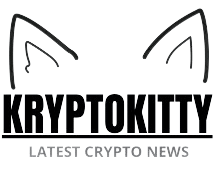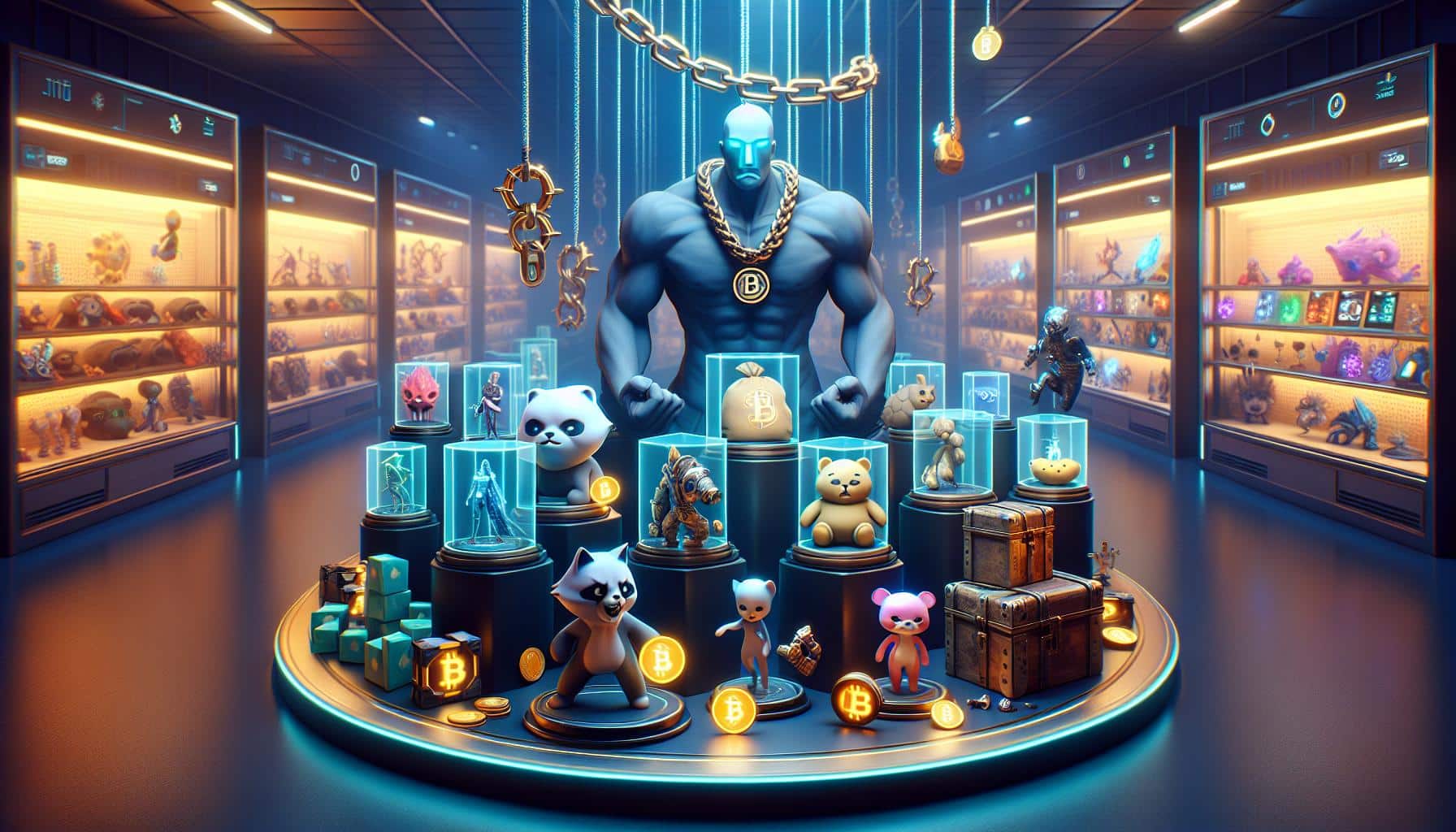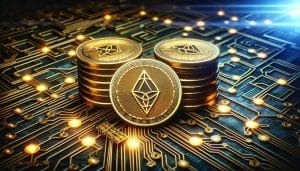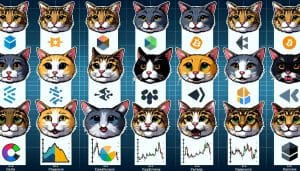Are you ready to dive into the dynamic world of NFT gaming economy? Imagine a realm where digital assets hold real-world value, revolutionizing how we perceive and interact with virtual gaming items. In this space, ownership is not just a concept but a tangible asset that you can buy, sell, and trade with other players.
In NFT gaming, each item is unique, secured by blockchain technology, ensuring authenticity and scarcity. The fusion of gaming and NFTs opens up a new frontier of possibilities, where in-game assets can have real monetary value beyond the virtual realm. As you explore this article, you’ll uncover the exciting potential and challenges that come with this innovative intersection of technology and gaming.
Understanding the NFT Gaming Economy
The Concept of NFTs in Gaming
When diving into the NFT gaming economy, you encounter a revolutionary concept that reshapes ownership within virtual worlds. Non-fungible tokens, or NFTs, represent unique digital assets that are indivisible and have distinct values. In the gaming realm, NFTs grant gamers true ownership of in-game items like weapons, skins, and characters. Unlike traditional in-game assets that are owned by game developers, NFTs empower you to buy, sell, and trade these digital possessions securely. By leveraging blockchain technology, each NFT is distinguishable, preventing duplication and fostering a transparent and decentralized ownership system.
Economic Models of NFT Gaming
The economic models underpinning the NFT gaming economy are multifaceted and innovative. Through NFTs, gamers can now monetize their playing experience by capitalizing on the value of rare in-game assets. For instance, in CryptoKitties, a popular NFT game, players breed and trade unique virtual cats, each with distinct traits and rarity levels. These digital pets can be auctioned off in a virtual marketplace, reflecting the convergence of gaming and blockchain technology.
Moreover, the ERC721 NFT standard, which is prominent in blockchain collectibles like CryptoKitties, enables the creation and exchange of unique digital assets on the Ethereum network. This standard defines how NFTs are created, owned, and transferred, ensuring interoperability and authenticity in the NFT ecosystem.
In exploring the NFT gaming economy, you’ll encounter a world where virtual assets hold tangible value, paving the way for decentralized ownership and innovative monetization models within gaming communities.
The Rise of NFT Games
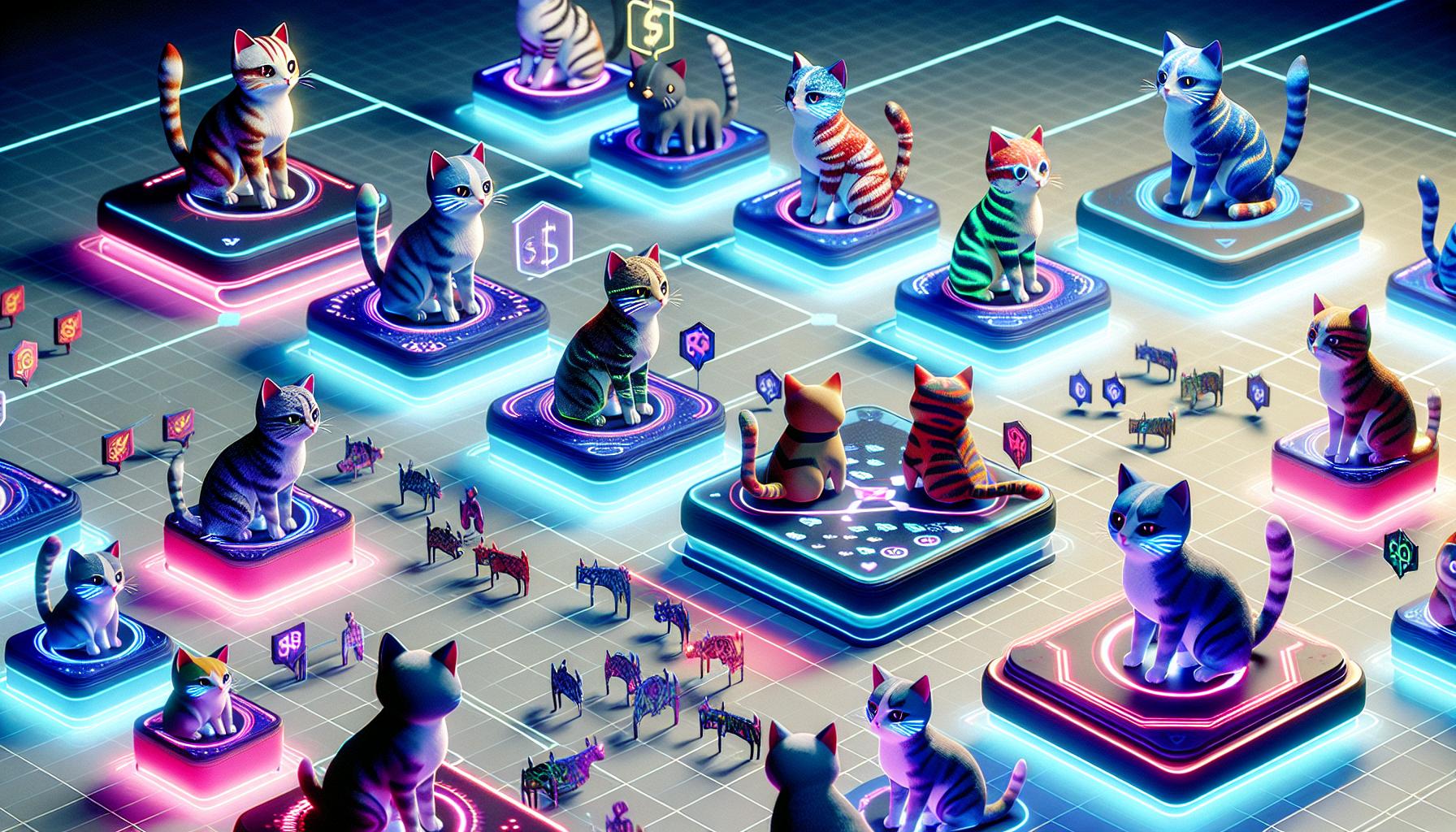
The NFT gaming industry is witnessing significant growth, driven by innovative concepts that merge blockchain technology with gaming experiences. In this section, we’ll explore the rise of NFT games and delve into the pioneers of this evolving landscape, as well as highlight successful games that have made a mark in the NFT gaming economy.
Pioneers of the NFT Gaming Industry
In the realm of NFT gaming, pioneers play a crucial role in shaping the industry’s future. Ethereum NFT pioneers have been instrumental in introducing non-fungible tokens to the gaming community, revolutionizing ownership in virtual worlds. Companies like Dapper Labs have been at the forefront of exploring the potential of blockchain technology in gaming, creating platforms like DapperWallet that facilitate the seamless exchange of rare digital assets.
Success Stories and Notable Games
Success in the NFT gaming space has been marked by notable games that have captured the imagination of players worldwide. Games like CryptoKitties have gained immense popularity for their unique concept of blockchain digital pets. These rare Crypto Kitties, known for their Gen0 founder kitties and distinctive Kitty Genomics traits, have created a virtual cat marketplace where players can buy, sell, and breed their digital felines.
The ERC721 NFT standard, utilized in games like CryptoKitties, has set a benchmark for creating decentralized digital assets with unique attributes. Players engage in activities such as crypto cat breeding, exploring Kitty Cattributes rarity, and participating in crypto cat auctions that showcase the value of these non-fungible felines. However, challenges like Ethereum gas issues have also tested the ecosystem, prompting developers to innovate and optimize decentralized exchanges for a smoother user experience.
As blockchain collectibles mania continues to thrive, NFT gaming offers a new paradigm of ownership and creativity. The success of rare Crypto Kitties and their captivating Nifty Kitty artwork demonstrates the potential for blockchain-based games to revolutionize traditional gaming models and foster a community around decentralized digital assets.
The fusion of blockchain technology and gaming not only introduces innovative monetization models but also emphasizes the significance of decentralized ownership in virtual worlds. Through games like CryptoKitties and their unique siring fees mechanism, players have embraced the concept of true ownership and value creation within the NFT gaming economy.
Advantages of the NFT Gaming Economy
Ownership and Provenance
In the NFT gaming economy, one significant advantage is the transparency and immutability of ownership and provenance. When you acquire an NFT-linked in-game asset, you have a verified record on the blockchain that unequivocally proves your ownership. This ensures that no central authority can dispute your rights to the item, giving you complete control over your digital possessions. For example, in games like CryptoKitties, each unique digital pet is backed by a non-fungible token on the Ethereum blockchain, clearly establishing who the rightful owner is.
Creating New Revenue Streams for Players
Another key advantage of the NFT gaming economy is the opportunity it provides for players to create new revenue streams. By owning NFTs representing valuable in-game assets, you can participate in a flourishing digital economy where you can buy, sell, and trade assets with other players. This ecosystem enables you to monetize your gaming skills and investments in a way that was not possible before. For instance, rare CryptoKitties, with their unique traits and provenance, have been known to sell for significant sums in online auctions, generating profits for their owners.
Growth of Play-to-Earn Model
The growth of the play-to-earn model within the NFT gaming economy is a game-changer for players. With NFTs representing digital assets that have real value, you can now earn tangible rewards for your time and effort spent in virtual worlds. Instead of just playing games for leisure, you can engage in activities that directly translate into economic benefits. Games like Axie Infinity have pioneered this concept, allowing players to earn cryptocurrency by breeding, battling, and trading NFT-backed creatures. This innovative approach not only enhances player engagement but also empowers individuals to earn a living through gaming.
The NFT gaming economy offers a paradigm shift in the way players interact with virtual worlds by providing ownership transparency, new revenue opportunities, and a play-to-earn model that transforms gaming into a livelihood. By leveraging blockchain technology and NFT standards like ERC721, players can fully immerse themselves in a decentralized ecosystem where digital assets hold real value and economic potential.
Challenges and Criticism
Scalability and Environmental Concerns
When it comes to the NFT gaming economy, one of the primary challenges that you may encounter is related to scalability and environmental concerns. The issue of scalability arises due to the growing demand for blockchain transactions, especially on platforms like Ethereum. As more users participate in NFT transactions, the network can face congestion, leading to higher gas fees and slower processing times. This can impact the overall user experience and the cost-effectiveness of participating in NFT gaming.
Moreover, an important environmental consideration associated with NFTs is their energy consumption. The process of minting, buying, and selling NFTs requires significant computational power, which contributes to the overall carbon footprint of blockchain networks like Ethereum. The proof-of-work consensus mechanism used in Ethereum mining can have a notable environmental impact due to its energy-intensive nature.
To mitigate these challenges, solutions such as Ethereum’s transition to the proof-of-stake mechanism with Ethereum 2.0 are being developed to improve scalability and reduce energy consumption. By shifting towards a more energy-efficient protocol, the environmental implications of NFT transactions can be minimized, contributing to a more sustainable NFT gaming ecosystem.
Market Volatility and Asset Valuation
Another aspect that you need to consider in the NFT gaming economy is market volatility and asset valuation. The value of NFTs, including blockchain digital pets like CryptoKitties, can be subject to significant fluctuations based on market demand, trends, and speculations. This volatility can pose risks to investors and players alike, as the value of their NFT assets may not remain stable over time.
Asset valuation in the NFT space can also be challenging, especially when dealing with unique assets like rare crypto kitties with specific traits and characteristics. Determining the worth of these non-fungible felines can be subjective and complex, leading to varying appraisals and pricing in the virtual cat marketplace. Factors such as kitty genomics traits, kitty cattributes rarity, and the provenance of NFTs can influence their market value and attractiveness to potential buyers.
To address concerns related to market volatility and asset valuation, strategies like conducting thorough research, analyzing historical data, and consulting experts in the field can help you make informed decisions when engaging with NFTs in the gaming economy. By staying informed about trends and developments in the market, you can navigate the fluctuations in asset prices more effectively and make strategic investments in blockchain collectibles with confidence.
Regulatory and Ethical Considerations
In the realm of the NFT gaming economy, navigating regulatory and ethical considerations is essential to ensure compliance and uphold ethical standards in the industry. As the popularity of NFTs continues to rise, regulatory bodies are paying closer attention to the legal implications of blockchain-based transactions, including crypto cat breeding and crypto cat auctions.
Issues such as crypto kitties siring fees, intellectual property rights, and data privacy are key areas of focus when it comes to regulatory scrutiny in the blockchain pet ownership space. Ensuring transparency in transactions, verifying the authenticity of NFT assets, and adhering to copyright laws are critical aspects of maintaining regulatory compliance in the NFT gaming ecosystem.
From an ethical standpoint, considerations surrounding fair practices, community engagement, and social responsibility play a vital role in shaping the ethical framework of the NFT gaming economy. Building trust among participants, respecting the rights of creators, and promoting inclusivity within decentralized digital asset ownership are fundamental principles that guide ethical decision-making in the blockchain collectibles mania.
By being mindful of regulatory requirements and ethical principles in your interactions within the NFT gaming economy, you can contribute to a more transparent, responsible, and sustainable ecosystem that upholds the integrity of decentralized digital assets and fosters trust among stakeholders.
Future of NFT Gaming
Continuing the discussion on NFT gaming, let’s delve into the future outlook of this rapidly evolving sector.
Technological Advancements and Blockchain Integration
As Ethereum NFT pioneers, like Dapper Labs, continue to innovate, expect to witness significant technological advancements and deeper blockchain integration in the NFT gaming space. Blockchain technology underpins the ownership and trading of digital assets, such as rare crypto cat breeding in games like CryptoKitties, where the ERC721 NFT standard authenticates each unique crypto cat. This integration ensures transparency and security in virtual cat marketplaces, revolutionizing how players interact with decentralized digital assets.
Market Predictions and Trends
The NFT gaming economy is poised for exponential growth with the increasing popularity of blockchain collectibles. The market trends suggest a surge in demand for non-fungible felines and rare crypto kitty artwork, driven by the allure of owning unique virtual pets with distinct kitty genomics traits. Crypto cat auctions and decentralized cattributes rarity are becoming mainstream, transforming how players engage with blockchain pet ownership. Keep an eye on developments like Gen0 founder kitties and the rise of Nifty Kitty artwork as they shape the future of NFT gaming.
Potential for Mainstream Adoption
With the advent of play-to-earn models in games like Axie Infinity, the potential for mainstream adoption of NFT gaming is on the horizon. More players are exploring the concept of owning and trading digital assets, embracing the concept of siring fees and virtual cat auctions within the ecosystem. As platforms like DapperWallet enable seamless transactions and interactions with blockchain collectibles, the path to widespread acceptance of NFTs in gaming becomes clearer. Expect virtual pet ownership to become a norm as the blockchain pet economy continues to thrive.
The future of NFT gaming holds immense promise, driven by technological innovations, evolving market dynamics, and a shift towards mainstream adoption. Stay tuned as this transformative landscape reshapes how we perceive and interact with decentralized digital assets in the gaming sphere.
Conclusion
The NFT gaming economy is reshaping the virtual gaming landscape, offering unparalleled ownership and revenue opportunities through blockchain technology. Despite challenges like scalability and environmental impact, solutions such as Ethereum’s transition to proof-of-stake are paving the way for a more sustainable future. Regulatory and ethical considerations are crucial in shaping the industry’s growth. Looking ahead, the NFT gaming sector is poised for significant growth, driven by technological advancements and the rising demand for unique digital assets. The shift towards play-to-earn models signals a transformative era in gaming, with decentralized assets gaining mainstream acceptance. The future of NFT gaming holds immense potential, with evolving market trends and a growing acceptance of decentralized digital assets within the gaming community.
Frequently Asked Questions
What are NFTs and how are they revolutionizing ownership in virtual gaming?
NFTs (Non-Fungible Tokens) are unique digital assets secured by blockchain technology, revolutionizing ownership in virtual gaming. They provide verifiable ownership and scarcity, enabling players to truly own in-game items.
What is the ERC721 standard, and why is it important in the context of NFT gaming?
ERC721 is a standard for creating NFTs on the Ethereum blockchain. It is vital in NFT gaming as it ensures each token is distinct, facilitating the creation and trading of unique in-game assets.
How do NFTs like CryptoKitties showcase the potential of ownership in virtual gaming?
CryptoKitties, a popular NFT game, demonstrates the value of owning unique digital assets that can be collected, bred, and traded, showcasing the potential for player ownership and creativity in virtual worlds.
What benefits do transparency and new revenue streams bring to the NFT gaming economy?
Transparency in NFTs ensures authenticity and provenance, while new revenue streams like royalties from secondary sales empower creators and incentivize the development of high-quality in-game assets.
What challenges does the NFT gaming economy face, and what solutions are being proposed?
Challenges such as scalability and environmental impact are being addressed through solutions like Ethereum’s transition to proof-of-stake consensus mechanism, aiming to improve efficiency and sustainability in NFT transactions.
Why are regulatory and ethical considerations important in the context of NFT gaming?
Regulatory frameworks and ethical guidelines are crucial to ensure consumer protection, prevent fraud, and uphold standards of fairness and transparency in the rapidly evolving NFT gaming market.
How do technological advancements and market trends shape the future of NFT gaming?
Technological advancements like improved scalability and market trends such as the demand for rare digital assets are driving the future of NFT gaming towards innovative gameplay experiences, broader adoption, and new revenue opportunities.
What potential do play-to-earn models hold for mainstream adoption of NFT gaming?
Play-to-earn models, where players can earn real value by participating in games, have the potential to attract a wider audience, increase engagement, and accelerate the mainstream adoption of NFT gaming as a legitimate form of entertainment and income generation.
